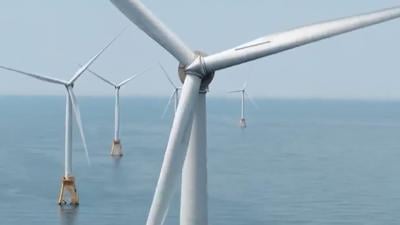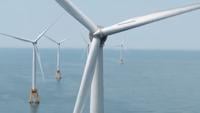DELAWARE - The agreement details renewable energy, community, and lease benefits to Delaware and its residents worth more than $128 million.
Governor John Carney and the Delaware Department of Natural Resources and Environmental Control (DNREC) announced the agreement on Jan. 6. It comes ahead of two proposed offshore wind projects from US Wind in the coming years.
The finalization of the agreements came after US Wind received needed federal and state environmental and permit approvals in Dec. 2024 for the first US Wind project, and about a year after the initial announcement of negotiations on the agreements.
The finalized agreements include:
- An agreement with DNREC's State Energy Office to provide 150,000 renewable energy credits (RECs) each year associated with the wind generation, which will be transferred to Delaware utilities to help them meet clean energy requirements, thus lowering customer bills. The RECs have an estimated value of $76 million over the life of the projects.
- An agreement for US Wind to fund coastal waterway dredging, clean energy workforce training, environmental scholarships, and resiliency and capital projects at state parks. The community benefits agreement is worth $40 million over 20 years.
- A lease with Delaware State Parks for underground access for power transmission cables at Delaware Seashore State Parks. Lease payments from US Wind will total more than $12 million over 25 years.
Governor Carney's office says the three agreements facilitate what are likely to be among the first wind projects in operation in the mid-Atlantic. The projects will sell carbon-free power into the regional power grid, and this new source of power generation is projected by US Wind to lower electric costs for Delaware ratepayers by up to $253 million over 20 years. US Wind will also invest more than $200 million in transmission system upgrades, according to officials.
"With the recent federal and state project approvals, we are ready to reap the environmental, health, workforce, energy cost and community benefits from this needed transition to renewable energy," said Governor Carney. "Delawareans will benefit in numerous ways from this important agreement.”
“The DNREC State Energy Office's recently released State Energy Plan emphasizes the need for offshore wind development in order to reach our emissions reduction goals, and the need to consider partnerships with other states and wind project developers to reduce costs," said DNREC Secretary Shawn M. Garvin. “Additionally, the funding for dredging, resiliency and parks projects and workforce training will provide needed resources to protect and preserve Delaware's natural resources for decades to come.”
“These agreements signify our continued commitment to providing meaningful and lasting benefits to the people of Delaware from our projects,” said Jeff Grybowski, US Wind CEO. “Our project will deliver a massive amount of new electricity directly into the regional electric grid in Delaware, which means a lot of benefits locally. Specifically, we will fund over $200 million in upgrades to the transmission system, resulting in a much stronger and more reliable local grid and good jobs for local electrical workers. Delivering this new electricity to the power grid in Delaware will also lower electricity bills for Delawareans, including Sussex County residents. We’re grateful for the continued partnership with the state and look forward to working together for years to come.”
While the state celebrated the deal, critics expressed frustration. Fenwick Island Mayor Natalie Magdeburger, a long-standing opponent of the project, said she was unsurprised by the move,
“We were very disappointed, but it was not an unexpected piece of news. The fact that he did it on his last day in office just kind of puts a punctuation on the back behind-the-scenes dealings that have been going on. There's clearly a conflict of interest." She said, "At the time that these negotiations were going on, which amounted to the determination yesterday, they were also issuing or considering permits."
Magdeburger argued that the wind project poses significant environmental and economic risks to coastal communities.
“Not only will we have wind farms off our shore that are going to be catastrophic, but now we're going to have a bay that is just critical to our environmental needs down here that is going to be at further risk."
She called on Delawareans to resist the project,
“What we have here is truly a gift and a blessing. Generations of Delawareans have fought very hard to protect it. This generation of Delawareans needs to rise up and let the folks that are making these decisions so callously know that this is wrong for our state.”
Opposition groups, including Fenwick Island, have joined an appeal process to challenge the necessary permits for the project.



